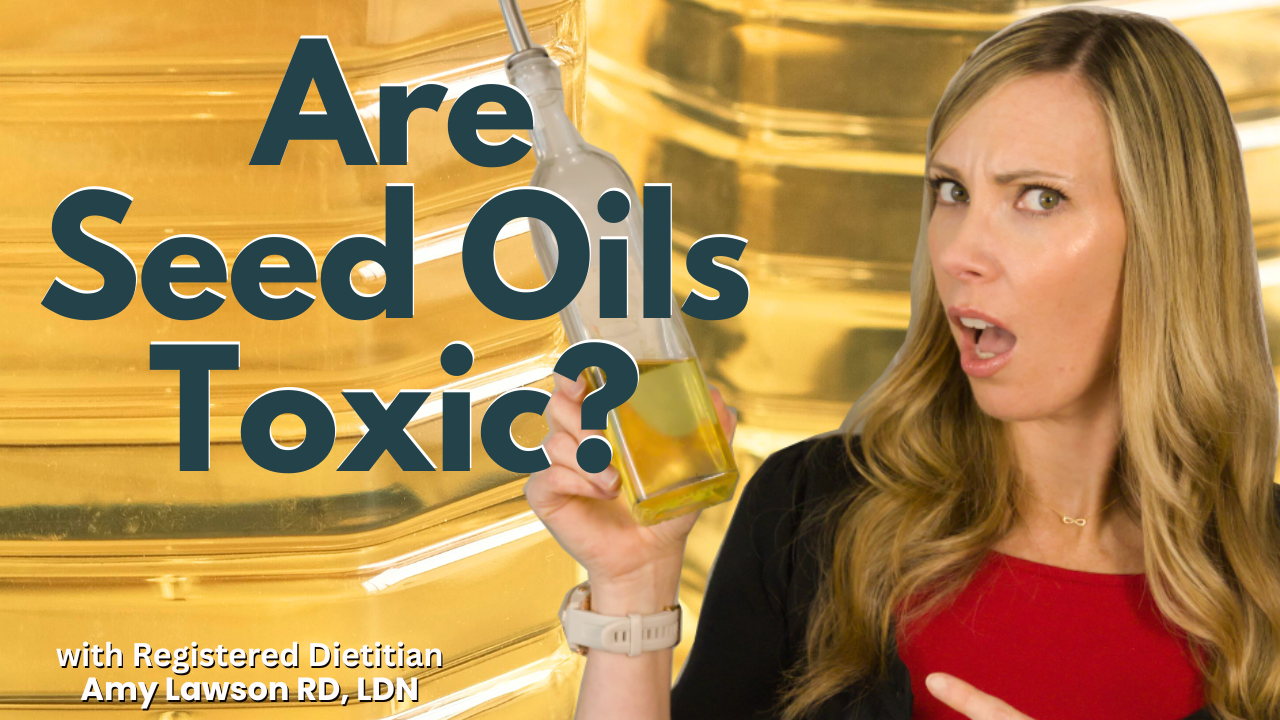If you’ve been following nutrition trends lately, you’ve probably come across the buzz about seed oils. Many influencers are calling them “toxic” and even lumping them in with the so-called “hateful eight.” But is there any real science behind these claims, or is it just hype? As a registered dietitian, I’m here to break down the evidence and clear up the confusion.
First, What Exactly Are Seed Oils?
Seed oils come from the seeds of various plants, not their fruits. Some common ones include:
- Canola Oil (from rapeseed)
- Sunflower Oil (from sunflower seeds)
- Grapeseed Oil (from grape seeds)
- Safflower Oil (from safflower seeds)
- Corn Oil
- Cottonseed Oil
- Rice Bran Oil
- Soybean Oil
These oils are mainly made up of unsaturated fats, particularly polyunsaturated fatty acids (PUFAs), which include omega-6 fatty acids. While omega-6s are important for our health, the high amounts in seed oils have some influencers pretty fired up.
Why All the Hype?
The idea that seed oils are toxic has really picked up steam on social media. Influencers often claim there’s a direct link between the rise in seed oils and the increase in chronic illnesses. While there is some truth to the fact that many processed foods contain seed oils, that doesn’t automatically mean they’re the cause of health problems. Other factors—like our sedentary lifestyles and overall diet quality—play a much bigger role in our health.
A classic example of mixing up correlation and causation is the “ice cream and shark attacks” correlation. During the summer, ice cream sales go up, and so do shark attacks—does that mean ice cream is luring sharks? Of course not! It’s just that both are tied to the same thing: people hitting the beach in warmer weather.

Are Seed Oils Really That Bad?
Short answer: not in the way people often claim. In fact, research shows that linoleic acid (the omega-6 fatty acid in seed oils) might actually help reduce inflammation. A big review of 30 studies found that higher linoleic acid intake was linked to a lower risk of heart disease and even death. Plus, another review from the Cochrane group found that upping omega-6 fats could lower heart attack risk without major effects on other heart-related issues. So, turns out, seed oils might not be the villain they’re made out to be.

The Omega-6 Debate
Omega-6 fatty acids are essential for a lot of important functions in our bodies, like keeping our cell membranes healthy. One type of omega-6, linoleic acid, is found in high amounts in seed oils. Critics often claim that too much omega-6 causes inflammation, which could lead to issues like diabetes, heart disease, and even headaches.
But here’s the thing: only about 0.2% of the linoleic acid we consume actually turns into arachidonic acid, which is linked to inflammation. Plus, arachidonic acid has anti-inflammatory properties too. This important detail often gets glossed over by those calling out seed oils.
The Bottom Line on Seed Oils
The idea that seed oils are toxic is often blown way out of proportion for the sake of clicks and drama. Sure, some people feel better after ditching seed oils, but let’s not forget they’re usually cutting out a lot of processed foods too, which are packed with refined carbs and sugars.
If your diet is heavy on fast food and processed junk, swapping those out for whole foods will definitely boost your health. But there’s no need to stress over using seed oils in moderation or having the occasional snack that contains them.
For a healthier lifestyle, focus more on boosting your omega-3s (think walnuts, salmon, and flaxseed) instead of turning omega-6s into the villain. Getting the facts straight about seed oils and their role in our diet is key. Instead of falling for fear-mongering, let’s focus on the evidence and make informed choices about what we eat!
References:



